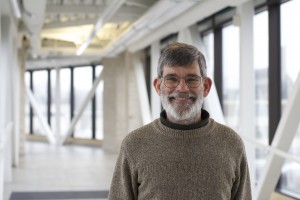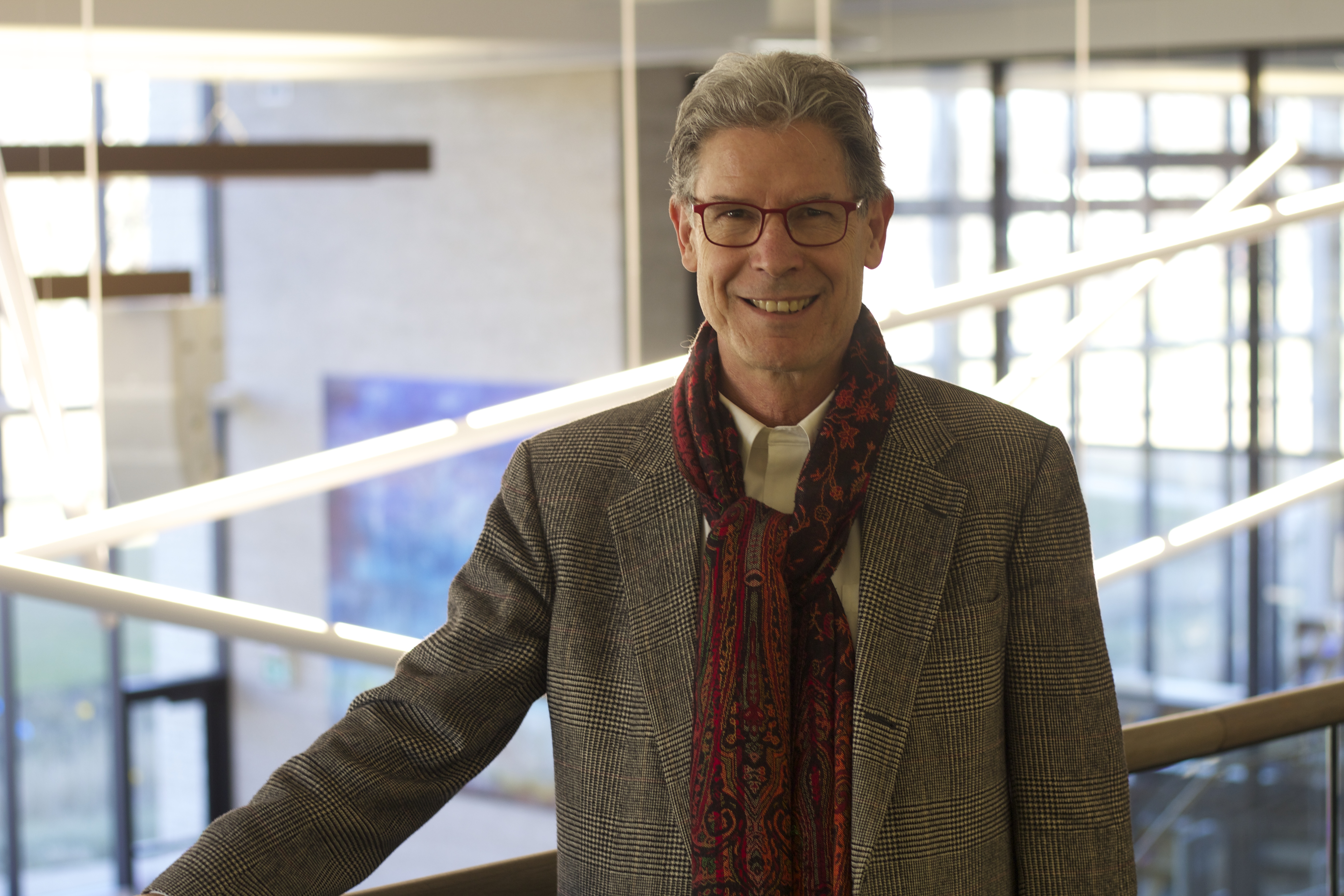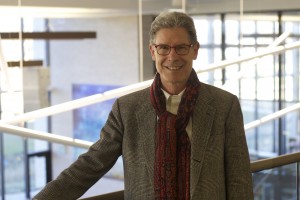 Dr. Dan Epp-Tiessen, Associate Professor of Bible, has taught at CMU since 1998.
Dr. Dan Epp-Tiessen, Associate Professor of Bible, has taught at CMU since 1998.
What are you teaching right now that you’re most excited about?
Creation, Environment, and the Bible. Given the ecological challenges this planet faces, we as Christians have a unique opportunity to address those issues because our fundamental conviction is that God has created this amazing cosmos. If God has created this unbelievably beautiful, complex world, we of all people ought to love and care for it.
What are you researching and writing?
I’ve been asked to write a Believers Church Bible Commentary on the book of Micah. I’ve always loved the prophets. They tell it like it is in terms of naming the sins and shortcomings of God’s people, and yet they’re also profoundly hopeful. The book of Micah brings together the importance of worship, the importance of a close relationship with God, and how the two should lead to a life of faithfulness and justice, and of caring for people in the community—especially the weaker and more vulnerable members of the community.
What you are reading for enjoyment?
In the last few years I’ve been trying to read more about Indigenous-settler relations in this country. That’s not always enjoyable, but I’ve found it deeply, deeply meaningful. I think if we’re going to live well in this country, it’s one of the primary agenda items that we as a settler society need to face going forward.
Where or how do students give you hope?
For me the hope and encouragement from students come from when I see them get excited about the stuff we’re talking about in class; when I see them get excited about particular biblical stories or biblical books or biblical passages and themes. They want their lives to be shaped by this stuff. They want to be people transformed by God’s grace, transformed by the life of Jesus, and they want all of that to make a difference in their lives.
What do you most long for in your work?
That students come to love Jesus, that they become excited about—and committed to—the biblical story, and that somehow their lives are transformed and deepened because of the stuff we’ve talked about, read, and studied in class. That’s what I long for: to see our students grow in their relationship with God, grow in their commitment to the Christian faith, and become more mature, healthy human beings.
What saying or motto inspires you?
In the last few years I’ve been drawn to a famous prayer by Augustine: “You have made us for yourself, O Lord, and our heart is restless until it finds its rest in you.” For me, that’s a source of huge comfort and hope. It’s also what I hope for my students: that they will come to experience themselves as beloved children of God and be deeply, deeply rooted in God.


